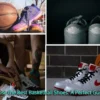As you embark on your daily journey, your vehicle’s windows and windshield provide you with a view of the world outside. However, the wear and tear of the road, environmental factors, and unexpected incidents can sometimes leave you with damaged auto glass. When damage is beyond repair, auto glass replacement becomes a necessity. In this comprehensive guide, we’ll delve into the world of auto glass replacement, discussing when it’s needed, the process, types of glass, factors to consider, and the importance of choosing a reputable professional.
Table of Contents
Knowing When Auto Glass Replacement is Necessary
While auto glass repair is often the first choice for minor damage, there are situations where replacement is the only viable solution:
- Large Cracks: Cracks that extend across the windshield or side windows can compromise structural integrity and visibility, necessitating replacement.
- Shattered Glass: Accidents, vandalism, or harsh impacts can lead to shattered auto glass that poses immediate safety risks.
- Extensive Damage: Severe damage that cannot be effectively repaired, such as multiple cracks or compromised glass, requires replacement.
The Auto Glass Replacement Process
1. Assessment: A certified technician will assess the damage to determine whether replacement is necessary. They will also inspect the vehicle to ensure no underlying issues that caused the damage.
2. Glass Removal: The damaged glass is carefully removed, taking precautions to prevent further damage to the vehicle.
3. Cleaning and Preparation: The frame and surrounding areas are cleaned and prepped to ensure a secure fit for the new glass.
4. Installation: The new glass is carefully placed and fitted into the frame using specialized adhesives that ensure a strong bond.
5. Cure Time: The adhesive requires time to cure and create a secure seal. This usually takes a few hours, depending on the type of adhesive used.
Types of Auto Glass
When it comes to auto glass replacement, there are different types of glass to consider:
- OEM (Original Equipment Manufacturer) Glass: This type of glass is manufactured by the same company that made the original glass for your vehicle. It ensures the best fit and quality.
- Aftermarket Glass: Produced by third-party manufacturers, aftermarket glass is designed to fit a wide range of vehicles. While it may be more affordable, quality can vary.
- Dealer Glass: Dealer glass is sourced from the vehicle’s manufacturer and is usually an OEM or equivalent quality.
Factors to Consider During Auto Glass Replacement
- Quality: Opt for a high-quality glass that meets safety standards and fits your vehicle perfectly.
- Certified Technicians: Choose a reputable auto glass replacement company with certified technicians to ensure proper installation.
- Insurance Coverage: Check if your insurance policy covers auto glass replacement. Many comprehensive policies include glass coverage.
- Warranty: Inquire about warranties provided by the replacement company. A reliable warranty ensures peace of mind in case of defects or issues.
- Time: While the actual replacement process may only take a few hours, consider the curing time for the adhesive.
Importance of Professional Auto Glass Replacement
Skilled technicians ensure that the replacement is done correctly, guaranteeing your safety and the longevity of the new glass. Properly installed auto glass provides structural support, maintains the vehicle’s integrity, and enhances its overall safety features.
Conclusion
Auto glass replacement is a crucial step towards maintaining the safety and comfort of your vehicle. When damage is beyond repair, choosing the right type of glass, a reputable replacement service, and certified technicians are essential for a successful replacement process. Remember, your vehicle’s windows and windshield are more than just barriers; they are integral components that contribute to your driving experience and safety. By prioritizing timely and professional auto glass replacement, you’re ensuring that your journey continues with clarity and security, no matter what the road ahead holds.










